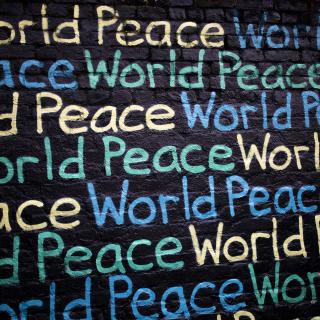Examples of Projects
Early Childhood Peace Consortium
Our international, multidisciplinary research team works on the science of early childhood development and peacebuilding. We inform global policies to help prevent violence and build new generations of reconciliation. Yale faculty have led the inauguration of the Early Childhood Peace Consortium, found herehttps://ecdpeace.org/.
Our research examines caregiving across generations, examining impacts on child wellbeing and social outcomes.
See the book on Pathways to Peace
See also https://pubmed.ncbi.nlm.nih.gov/23517424/
https://pubmed.ncbi.nlm.nih.gov/31539783/
See commentary: https://pubmed.ncbi.nlm.nih.gov/25135767/
Mapping the Drivers of Everyday Peace
Peace means different things to different people - a key challenge lies in constructively understanding the drivers of peace with a view to inform research and practice. Specifically, scholars and practitioners can engage in problem-solving approaches at the heart of peacebuilding efforts - through bolstering mutual understanding between peoples, identifying common interests, and contributing to global peace.
This research projects used a participatory, visual methodology called ‘fuzzy cognitive mapping’ (FCM). This is a type of systems-mapping well-suited to break down complex concepts and facilitate problem-solving.
In 2024, our team has been conducting FCM sessions with groups of stakeholders (community members, peace practitioners, professors, refugees, and students). This work is undertaken in collaboration with colleagues at the University of Nouakchott and Diplomatic Academy (Mauritania), the University For Peace (UPEACE, Costa Rica), the UNDP Crisis Bureau (USA), the United States Institute of Peace (USA), the Early Childhood Peace Consortium (Turkey), and the Queen University Belfast (United Kingdom). The project is funded by Professor Panter-Brick’s MacMillan Collaborative International Research Grant, July 2024-25.
The aim is to compare mental maps of ordinary peace - across stakeholder groups - and test assumptions about the drivers of systems change - across sites. We have found that participants are very much engaged in this approach to mapping the drivers of peace.
The next of field research will be completed in spring 2025.
